Filter by
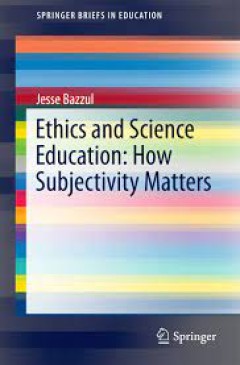
Ethics and Science Education: How Subjectivity Matters
This book encapsulates a line of research that looks at how students are positioned as ethical actors/decision makers in biology education by science policy, curriculum, and classroom resources. Its basis comes from a textbook study that examined how biology texts work to constitute subjectivities related to neoliberalism and global capitalism, sex/gender and sexuality, and ethics. The study fo…
- Edition
- -
- ISBN/ISSN
- 978-3-319-39132-8
- Collation
- 1 illustrations in colour
- Series Title
- -
- Call Number
- -
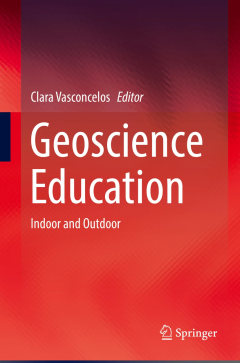
Geoscience Education
This book presents research in Geoscience Education focusing on indoor and outdoor environments in which teaching geoscience gains particular relevance, significance and contextualization. The research areas that are presented throughout the thirteen chapters cover a wide variety of subjects ranging from educational resources and fieldwork to science models. Chapters discuss specific geoscience…
- Edition
- -
- ISBN/ISSN
- 978-3-319-43318-9
- Collation
- -
- Series Title
- -
- Call Number
- 370 GEO
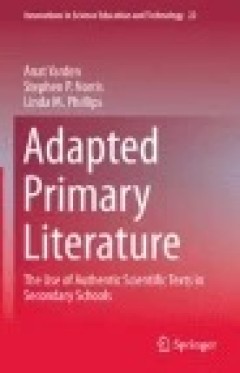
Adapted Primary Literature: The Use of Authentic Scientific Texts in Secondar…
This book specifies the foundation for Adapted Primary Literature (APL), a novel text genre that enables the learning and teaching of science using research articles that were adapted to the knowledge level of high-school students. More than 50 years ago, J.J. Schwab suggested that Primary Scientific Articles “afford the most authentic, unretouched specimens of enquiry that we can obtain” a…
- Edition
- Ed. 1
- ISBN/ISSN
- 978-94-017-9759-7
- Collation
- XIV, 242
- Series Title
- Innovations in Science Education and Technology
- Call Number
- 507 YAR a
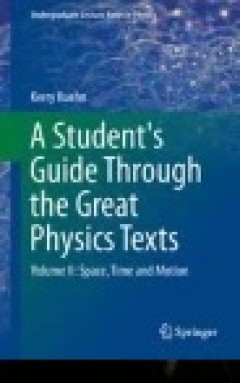
A Student's Guide Through the Great Physics Texts: Volume II: Space, Time and…
This book provides a chronological introduction to the science of motion and rest based on the reading and analysis of significant portions of Galileo’s Dialogues Concerning Two New Sciences, Pascal’s Treatise on the Equilibrium of Fluids and the Weight of the Mass of Air, Newton’s Mathematical Principles of Natural Philosophy, and Einstein’s Relativity. Each chapter begins with a sh…
- Edition
- Ed. 1
- ISBN/ISSN
- 978-1-4939-1366-4
- Collation
- XXVI, 380
- Series Title
- Undergraduate Lecture Notes in Physics
- Call Number
- 501 KUE s

A Student's Guide Through the Great Physics Texts: Volume I: The Heavens and …
This book provides a chronological introduction to the sciences of astronomy and cosmology based on the reading and analysis of significant selections from classic texts, such as Ptolemy’s The Almagest, Kepler’s Epitome of Copernican Astronomy, Shapley’s Galaxies and Lemaître’s The Primeval Atom. Each chapter begins with a short introduction followed by a reading selection. Carefull…
- Edition
- Ed. 1
- ISBN/ISSN
- 978-1-4939-1360-2
- Collation
- XXVII, 396
- Series Title
- Undergraduate Lecture Notes in Physics
- Call Number
- 501 KUE s
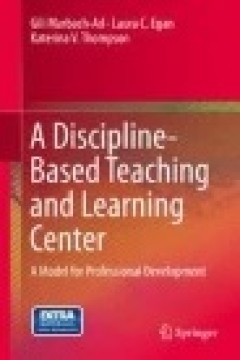
A Discipline-Based Teaching and Learning Center: A Model for Professional Dev…
This book describes the design and implementation of a discipline-specific model of professional development: the disciplinary Teaching and Learning Center (TLC). TLC was born from a strong commitment to improving undergraduate science education through supporting the front-line educators who play an essential role in this mission. The TLC’s comprehensive approach encompasses consultation, se…
- Edition
- Ed. 1
- ISBN/ISSN
- 978-3-319-01652-8
- Collation
- -
- Series Title
- -
- Call Number
- 507 MAR d
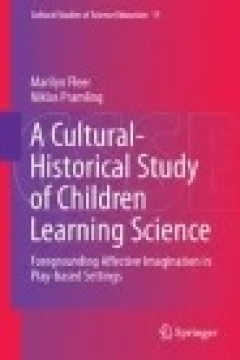
A Cultural-Historical Study of Children Learning Science: Foregrounding Affec…
This book moves beyond the traditional constructivist and social-constructivist view of learning and development in science. It draws upon cultural-historical theory in order to theorise early childhood science education in relation to our currently globalised education contexts. The book argues that concept development in science for young children can be better theorised by using Vygotsky’s…
- Edition
- Ed. 1
- ISBN/ISSN
- 978-94-017-9370-4
- Collation
- -
- Series Title
- Cultural Studies of Science Education
- Call Number
- 507 FLE c
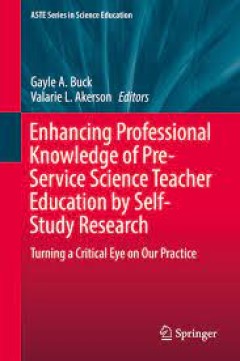
Enhancing Professional Knowledge of Pre-Service Science Teacher Education by …
Self-study research is making an impact on the field of science education. University researchers employ these methods to improve their instruction, develop as instructors, and ultimately, impact their students’ learning. This volume provides an introduction to self-study research in science education, followed by manuscripts of self-studies undertaken by university faculty and those becoming…
- Edition
- -
- ISBN/ISSN
- 978-3-319-32447-0
- Collation
- XI, 467
- Series Title
- -
- Call Number
- -
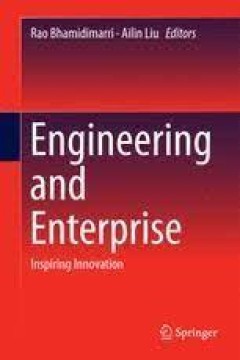
Engineering and Enterprise Inspiring Innovation
This book presents contributions from researchers, practitioners and professional institutions that published papers in the Proceedings of the Educating Enterprising Engineers and Scientists conference, held in London, UK on 17th June 2015. The topics considered range from educating engineers to giving a business edge and embedding entrepreneurship to achieve integrated education and curriculum…
- Edition
- -
- ISBN/ISSN
- 978-3-319-27825-4
- Collation
- 3 b/w illustrations, 24 illustrations in colour
- Series Title
- -
- Call Number
- -
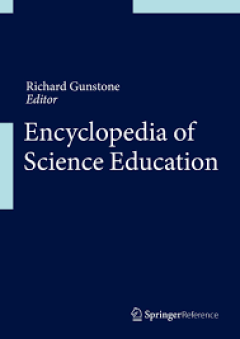
Encyclopedia of Science Education
The Encyclopedia of Science Education provides a comprehensive international reference work covering the range of methodologies, perspectives, foci, and cultures of this field of inquiry, and to do so via contributions from leading researchers from around the globe. Because of the frequent ways in which scholarship in science education has led to developments in other curriculum areas, the ency…
- Edition
- -
- ISBN/ISSN
- 978-94-007-2150-0
- Collation
- 47 b/w illustrations, 42 illustrations in colour
- Series Title
- -
- Call Number
- -
 Computer Science, Information & General Works
Computer Science, Information & General Works  Philosophy & Psychology
Philosophy & Psychology  Religion
Religion  Social Sciences
Social Sciences  Language
Language  Pure Science
Pure Science  Applied Sciences
Applied Sciences  Art & Recreation
Art & Recreation  Literature
Literature  History & Geography
History & Geography